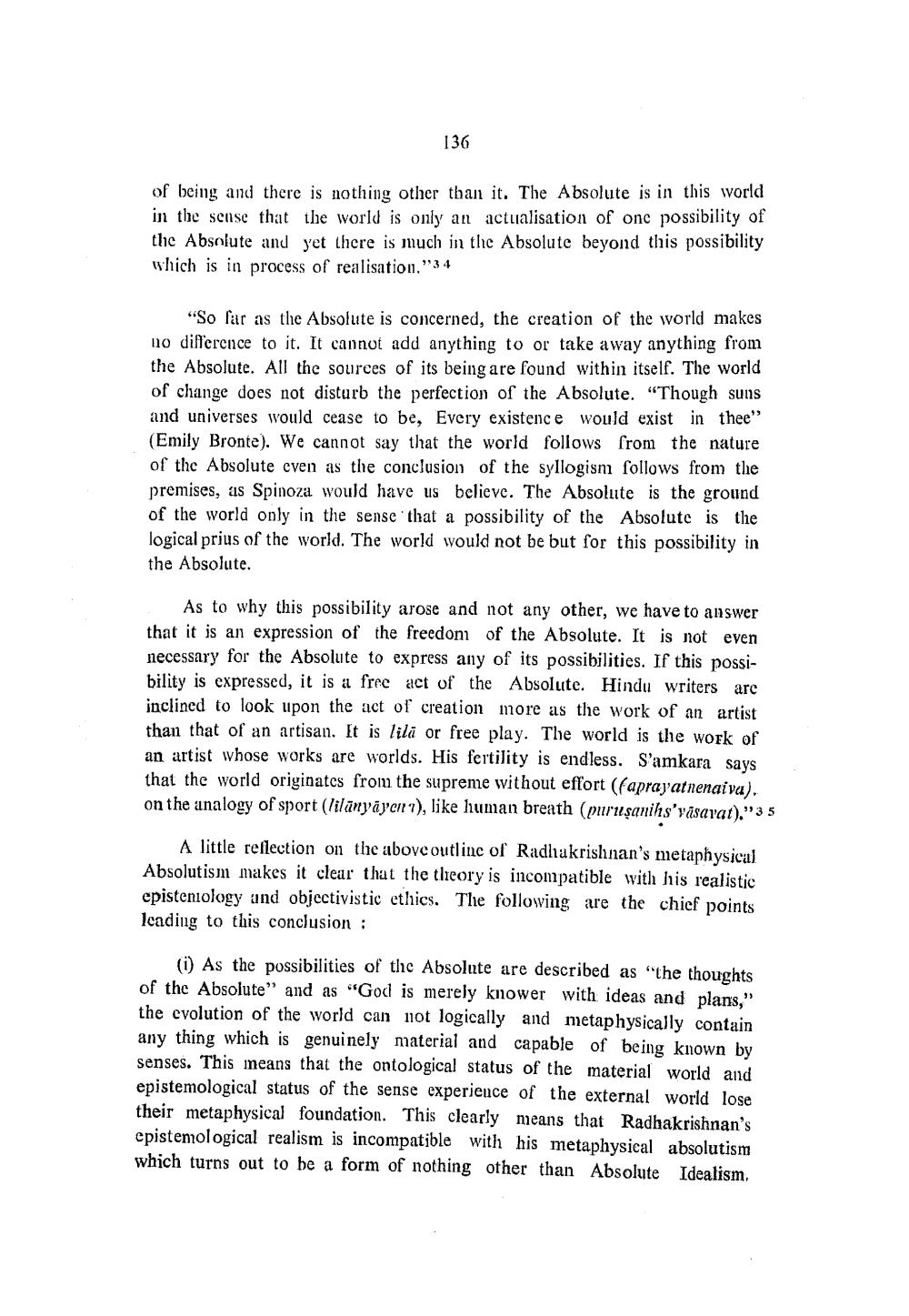________________
136
of being and there is nothing other than it. The Absolute is in this world in the sense that the world is only an actualisation of one possibility of the Absolute and yet there is much in the Absolute beyond this possibility which is in process of realisation."34
"So far as the Absolute is concerned, the creation of the world makes no difference to it. It cannot add anything to or take away anything from the Absolute. All the sources of its being are found within itself. The world of change does not disturb the perfection of the Absolute. "Though suns and universes would cease to be, Every existence would exist in thee" (Emily Bronte). We cannot say that the world follows from the nature of the Absolute cven as the conclusion of the syllogism follows from the premises, as Spinoza would have us believe. The Absolute is the ground of the world only in the sense that a possibility of the Absolute is the logical prius of the world. The world would not be but for this possibility in the Absolute.
As to why this possibility arose and not any other, we have to answer that it is an expression of the freedom of the Absolute. It is not even necessary for the Absolute to express any of its possibilities. If this possibility is expressed, it is a free act of the Absolute. Hindu writers are inclined to look upon the act of creation more as the work of an artist than that of an artisan. It is lila or free play. The world is the work of an artist whose works are worlds. His fertility is endless. S'amkara says that the world originates from the supreme without effort (faprayatnenaiva). on the analogy of sport (lilāryāyan 7), like human breath (puurilşanihs'vāsavat).”35
A little reflection on the above outline of Radhakrishnan's metaphysical Absolutism makes it clear that the tlieory is incompatible with his realistic episteniology and objectivistic ethics. The following are the chief points leading to this conclusion :
(i) As the possibilities of the Absolute are described as "the thoughts of the Absolute" and as "God is merely knower with ideas and plans," the evolution of the world can not logically and metaphysically contain any thing which is genuinely material and capable of being known by senses. This means that the ontological status of the material world and epistemological status of the sense experience of the external world lose their metaphysical foundation. This clearly means that Radhakrishnan's epistemological realism is incompatible with his metaphysical absolutism which turns out to be a form of nothing other than Absolute Idealism.




